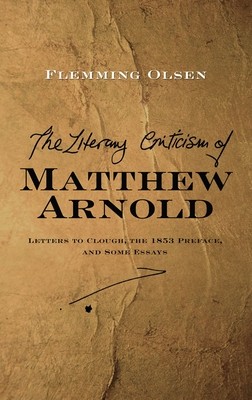
- We will send in 10–14 business days.
- Author: Flemming Olsen
- Publisher: Liverpool University Press
- ISBN-10: 1845197100
- ISBN-13: 9781845197100
- Format: 13.5 x 21.1 x 0.8 cm, minkšti viršeliai
- Language: English
- SAVE -10% with code: EXTRA
Reviews
Description
Many of the ideas that appear in Arnold's Preface of 1853 to his collection of poems and in his later essays are suggested in the letters that Arnold wrote to his friend Arthur Hugh Clough. Analysis of the Preface reveals a poet who found a theoretical basis for poetry (by which he means literature in general) in the dramas of the Greek tragedians, particularly Sophocles: action is stressed as an indispensable ingredient, wholes are preferred to parts, the didactic function of literature is promoted -- in short, the Preface reads like the recipe for a classical tragedy. It is a young poet's attempt to establish criteria for what poetry ought to be. He found the Romantic idiom outworn. Literature was, in Arnold's perception, meant to communicate a message rather than impress by its structure or by formal sophistication. Modern theories of coalescence between content and form were outside the contemporary paradigm. T S Eliot's ambivalent attitude to Arnold -- now reluctantly
admiring, now decidedly pa
EXTRA 10 % discount with code: EXTRA
The promotion ends in 22d.06:20:46
The discount code is valid when purchasing from 10 €. Discounts do not stack.
- Author: Flemming Olsen
- Publisher: Liverpool University Press
- ISBN-10: 1845197100
- ISBN-13: 9781845197100
- Format: 13.5 x 21.1 x 0.8 cm, minkšti viršeliai
- Language: English English
Many of the ideas that appear in Arnold's Preface of 1853 to his collection of poems and in his later essays are suggested in the letters that Arnold wrote to his friend Arthur Hugh Clough. Analysis of the Preface reveals a poet who found a theoretical basis for poetry (by which he means literature in general) in the dramas of the Greek tragedians, particularly Sophocles: action is stressed as an indispensable ingredient, wholes are preferred to parts, the didactic function of literature is promoted -- in short, the Preface reads like the recipe for a classical tragedy. It is a young poet's attempt to establish criteria for what poetry ought to be. He found the Romantic idiom outworn. Literature was, in Arnold's perception, meant to communicate a message rather than impress by its structure or by formal sophistication. Modern theories of coalescence between content and form were outside the contemporary paradigm. T S Eliot's ambivalent attitude to Arnold -- now reluctantly
admiring, now decidedly pa


Reviews